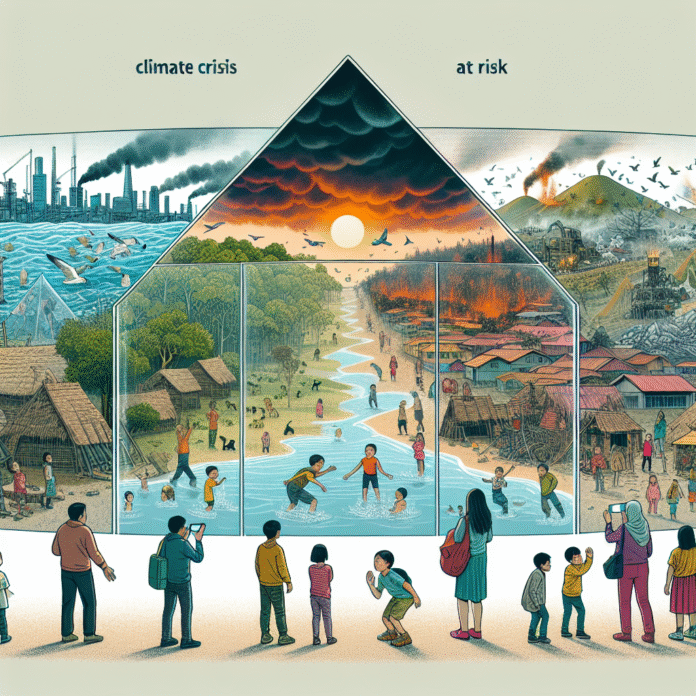Children Face Dangers from Climate Crisis
Climate Crisis: Children Under Threat
The climate crisis poses a significant threat to the well-being and future of children across the globe. As the planet continues to warm due to human activities, the repercussions are felt most acutely by the younger generation, who will inherit the consequences of environmental degradation.
Increased Vulnerability
Children are particularly vulnerable to the effects of climate change. Extreme weather events, such as hurricanes, floods, and droughts, are becoming more frequent and severe. These disasters not only endanger lives but also disrupt education and healthcare services, leading to long-term developmental challenges for affected children. Additionally, rising temperatures contribute to health issues, including respiratory diseases and heat-related illnesses, which disproportionately affect young bodies.
Impact on Education
Access to education is increasingly at risk due to climate-related disruptions. Schools are often closed or repurposed as shelters during disasters, forcing children out of classrooms and into precarious living situations. Furthermore, the psychological toll of experiencing climate-related trauma can hinder cognitive development and learning, leaving lasting scars on a child’s educational journey.
Food and Water Security
The climate crisis also exacerbates food and water insecurity. Changing weather patterns affect agricultural productivity, leading to malnutrition and hunger among children. In regions already facing economic challenges, these impacts can be devastating. Access to clean water is similarly threatened; droughts and floods can contaminate water supplies, increasing the risk of waterborne diseases, which are particularly dangerous for young children.
Policy and Advocacy
Addressing the climate crisis requires urgent action from governments, communities, and individuals. It is crucial to implement policies that prioritize the protection of children and ensure sustainable practices that mitigate climate change. Advocacy for greener technologies, investment in renewable energy, and enhancing climate education in schools are essential steps toward a resilient future.
Global Efforts and Initiatives
Various international organizations, including UNICEF and the World Health Organization, are working to raise awareness about the impact of climate change on children. They advocate for children’s rights in the context of environmental sustainability and encourage nations to adopt child-centered approaches in climate policies. Programs aimed at educating children about sustainability and resilience can empower the next generation to combat climate change and advocate for their rights.
Conclusion
The implications of the climate crisis for children are profound and far-reaching. It is imperative that we prioritize their safety, health, and education in our global response to climate change. By investing in sustainable solutions and fostering a culture of resilience, we can protect the youngest members of our society and secure a healthier planet for future generations.


